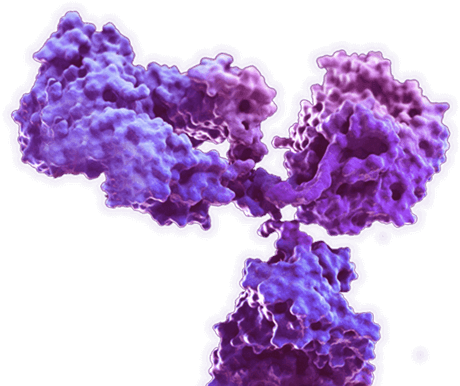AibGenesis™ Mouse Anti-Arabidopsis AT4G08160 Antibody (CBMOAB-0063FYC)
Cat: CBMOAB-0063FYC

Certificate of Analysis Lookup
To download a Certificate of Analysis, please enter a lot number in the search box below. Note: Certificate of Analysis not available for kit components.
Lot Number
To download a Certificate of Analysis, please enter a lot number in the search box below. Note: Certificate of Analysis not available for kit components.
Lot Number
| Size: | |
| Conjugate: | |
| Inquiry |
- Specifications
- Application Information
- Target
- Reference
Specifications
| Host species | Mouse (Mus musculus) |
| Species Reactivity | A. thaliana (Arabidopsis thaliana) |
| Clone | MO0063FC |
| Specificity | This antibody binds to Arabidopsis AT4G08160. |
| Format | Liquid or Lyophilized |
| Storage | Store at 4°C: short-term (1-2weeks) Store at -20°C: long-term and future use |
| Purity | > 90% was determined by SDS-PAGE |
| Purification | Purified with Protein A or G affinity chromatography |
Application Information
| Application | WB, ELISA |
| Application Notes | ELISA: 1:1000-1:3000 Other applications are to be developed. The optimal dilution should be determined by the end user. |
Target
| Product Overview | Mouse Anti-Arabidopsis AT4G08160 Antibody is a mouse antibody against AT4G08160. It can be used for AT4G08160 detection in Western Blot, Enzyme-Linked Immunosorbent Assay. |
| Alternative Names | At4g08160; Putative xylan endohydrolase; At4g08160 At4g08160/F9M13_1 |
| UniProt ID | Q8GYW5 |
| Protein Refseq | The length of the protein is 752 amino acids long. The sequence is show below: MEKNTNTNHTSDDNNDKNHTNEEQEKIILNPNFEDGLNNWTGRACKIVLHESMNSGKIVPLSGKVFAAATQRKDTWNGIQQEISGRFRRKRVYEVTAVVRIFGNNVTSATVQATLWVLNANKREQYIVIANVQATDKNWVELKGKFVIHGSPSRVILYLEGPPPRADILLNSLVVQHAKRNRPSPPPFYENPGFGVNIVENSEVLDGGTKPWFTLGNCKLSVGQGAPRTLPPMARDTLGPHKPLGGNYIVVTNRTQTWMGPAQMITDKIKLFLTYQISAWVKLGVGVSGSSMSPQNVNIALSVDNQWVNGGQVEVTVGDTWHEIAGSFRLEKQPQNVMVYVQGPGAGIDLMIAALQIFPVDRRERVRCLKRQVDEVRKRDIVLKFSGLNDDESFDLFPYIVKVKQTYNSFPVGTCVNRTDIDNEDFVDFFTKNFNWAVFGNELKWYATEAERGKVNYQDADDMLDLCIGNNINVRGHCIFWEVESTVQPWVRQLNKTDLMNAVQKRLTDLLTRYKGKFKHYDVNNEMLHGSFYQDRLGKGVRALMFNIAHKLDPSPLLFVNDYHVEDGDDPRSSPEKYIKLVLDLEAQGATVGGIGIQGHIDSPVGAIVCSALDMLSVLGRPIWFTELDVSSSNEYVRGEDLEVMLWEAFAHPSVEGIMLWGFWELSMSRENANLVEGEGEVNEAGKRFLEVKQEWLSHAYGIINDESEFTFRGYHGTYAVEICTPVGIVLKTFVVEKGDTPLVISIDLSSL. |
Reference
| Reference | Sawa, S., Demura, T., Horiguchi, G., Kubo, M., & Fukuda, H. (2005). The ATE genes are responsible for repression of transdifferentiation into xylem cells in Arabidopsis. Plant physiology, 137(1), 141-148. |
For Research Use Only | Not For Clinical Use.
Online Inquiry


